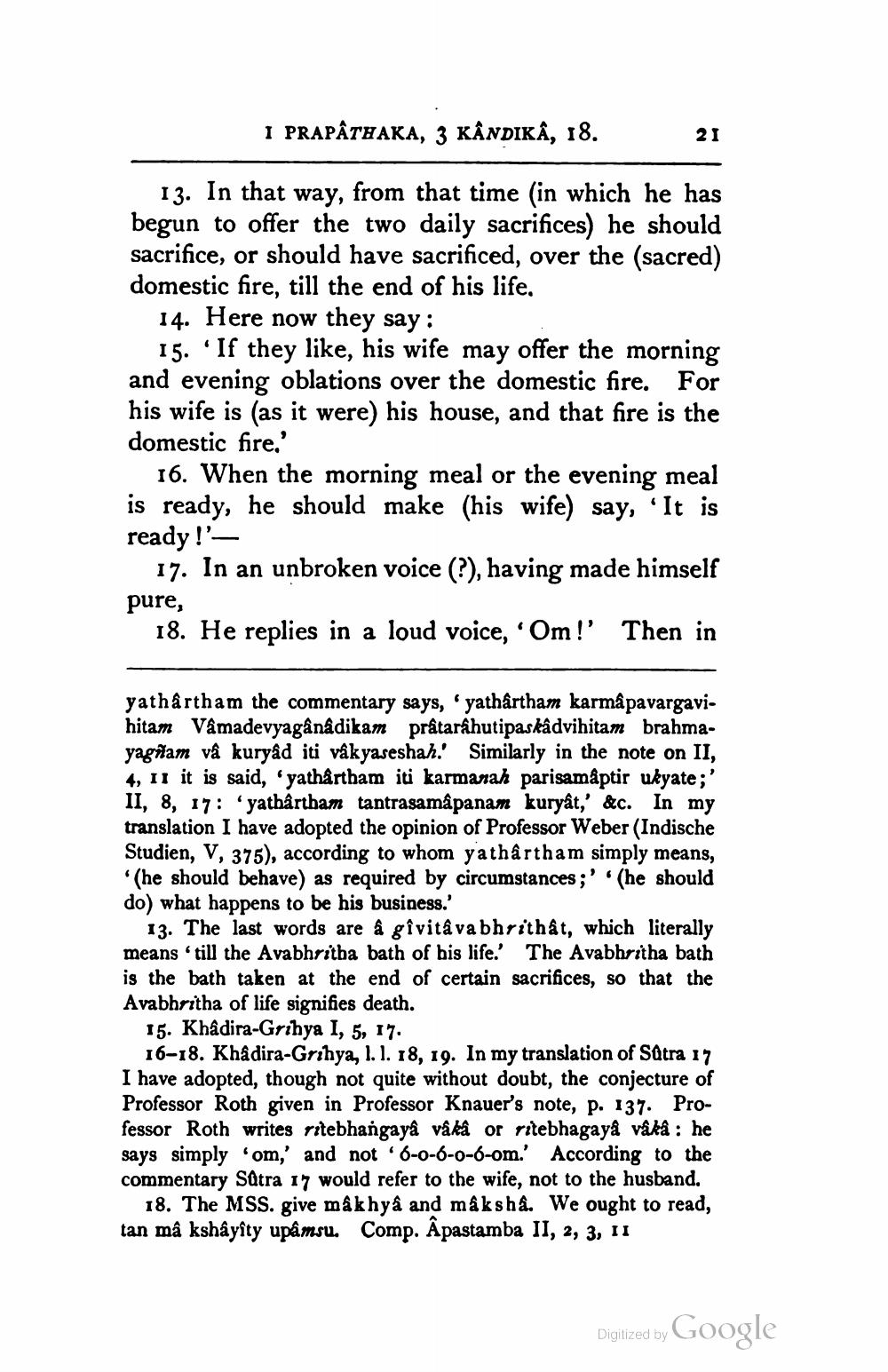________________
I PRAPATHAKA, 3 KÂNDIKÂ, 18.
21
13. In that way, from that time in which he has begun to offer the two daily sacrifices) he should sacrifice, or should have sacrificed, over the (sacred) domestic fire, till the end of his life.
14. Here now they say:
15. If they like, his wife may offer the morning and evening oblations over the domestic fire. For his wife is (as it were) his house, and that fire is the domestic fire,'
16. When the morning meal or the evening meal is ready, he should make (his wife) say, 'It is ready!'—
17. In an unbroken voice (?), having made himself pure,
18. He replies in a loud voice, 'Om!' Then in
yathartham the commentary says, 'yathartham karmâ pavargavihitam Vamadevya gånadikam prataráhutipa.skâdvihitam brahmayagñam vâ kuryâd iti vâkyaseshah.' Similarly in the note on II, 4, 11 it is said, yathårtham iti karmanah parisamåptir ukyate;' II, 8, 17: ‘yathartham tantrasamâpanam kuryât, &c. In my translation I have adopted the opinion of Professor Weber (Indische Studien, V, 375), according to whom yathârtham simply means,
(he should behave) as required by circumstances; ' (he should do) what happens to be his business.
13. The last words are a givitâ vabhrithát, which literally means till the Avabhritha bath of his life. The Avabbritha bath is the bath taken at the end of certain sacrifices, so that the Avabhritha of life signifies death.
15. Khâdira-Grihya I, 5, 17.
16-18. Khâdira-Grihya, I. 1. 18, 19. In my translation of Satra 17 I have adopted, though not quite without doubt, the conjecture of Professor Roth given in Professor Knauer's note, p. 137. Professor Roth writes ritebhangayâ vâkâ or ritebhagayå våkå: he says simply "om,' and not '6-0-6-0-6-om.' According to the commentary Sätra 17 would refer to the wife, not to the husband.
18. The MSS. give makhya and maksha. We ought to read, tan ma kshayîty upâmsu. Comp. Apastamba II, 2, 3, 11
Digitized by Google




